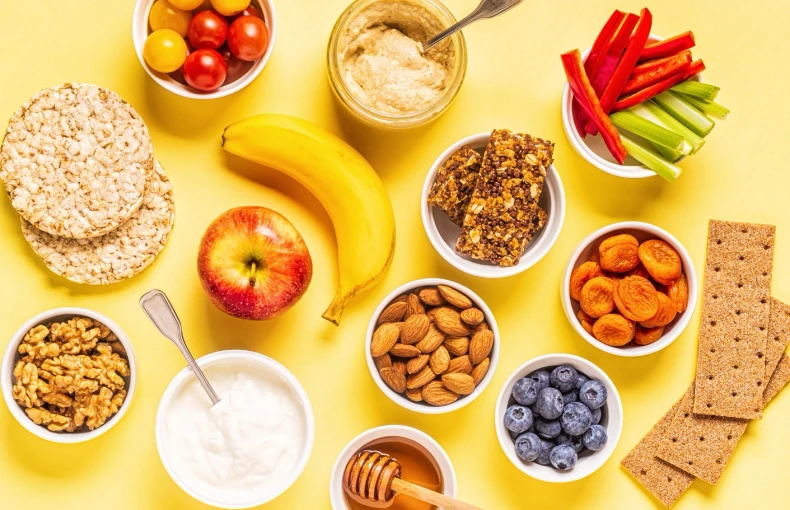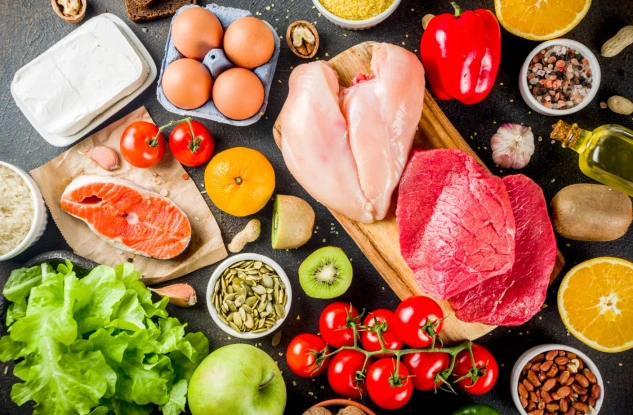Before a weight training session, any athlete wishing to optimize their energy, performance, and muscle recovery will consider their diet. In this case, should they prioritize a specific type of meal or nutrient before exercise?
In reality, the mostimportant thing is to respect your daily intake of proteins, carbohydrates and fats, spread throughout the day, to ensure that your body has the energy reserves it needs, particularly in the form of glycogen.
However, there are marginal optimization techniques, such as choosing foods with a suitable glycemic index or timing meals, which can provide additional benefit depending on the intensity and objective of the session.
In this article, we'll look at why daily intake remains fundamental, and then detail what to eat before a bodybuilding workout to optimize your results.
What's important: daily intake
Scientific research and experience show that the most decisive factor in muscle progression, weight loss or mass gain remains the overall daily intake of macronutrients: proteins, carbohydrates and fats.
For athletes, it is generally recommended to consume between 1.6 and 2.2 grams of protein per kilo of body weight every day(1) to support muscle growth and recovery. At Protéalpes, we don't recommend exceeding 2 g/kg/d, as higher doses are of little nutritional benefit.
Consuming the right amount of quality proteins, complex carbohydrates and good sources of lipids every day helps to ensure energy, muscle repair and sports performance, whatever the level or intensity of training.
A telling example is the anabolic window ". For a long time, it was advisable to quickly consume a source of protein and carbohydrates immediately after physical effort to maximize protein synthesis and muscle repair.
Today, science qualifies this recommendation(2): what really counts is the total nutritional intake over the whole day. Whether you eat a complete meal rich in protein, low-glycemic carbohydrates, fiber and micronutrients for breakfast, lunch or a snack, the key is to meet the body's daily requirements for muscle development, recovery and performance.
Therefore, the main answer to the question "What should I eat before a weight training session?" is: it doesn't matter, as long as the meal or snack consumed before training does not cause digestive discomfort or discomfort during exercise.
It's advisable to choose easily digestible foods, to avoid overly large or high-fiber portions just before the session, and to adapt the quantity according to the digestion time available before the physical activity.
In the following section, we'll give you some practical advice on what to eat before a sports session.

So what should you eat before a workout?
The question of what meal or snack to eat before a sports session, and particularly before strength training, needs to be approached with nuance and adaptation.
As we saw in the previous section, recent research(3) on nutritional timing suggests that the effects of the timing of food intake are generally modest, and highly context-dependent.
So, the choice of pre-workout meal should above all be based on digestive comfort, practicality and respect for the athlete's overall diet.
General principles
The main aim of pre-workout nutrition is to provide the muscle with an available source of energy (glucose, amino acids), while limiting the risk of intestinal problems (bloating, cramps) during exercise. It is advisable to eat a solid meal or snack 2 to 3 hours before the session, or a lighter snack 30 minutes to 1 hour before exercise, depending on each person's digestion process and sense of hunger.
A balanced meal before sports training should ideally contain :
- Moderate GI carbohydrates (wholemeal bread, brown rice, oat flakes...) and to a lesser extent higher GIs (sweet potato, banana, honey...) to (re)charge muscle glycogen reserves and provide a quick energy boost.
- Lean proteins (chicken, egg, fish, cottage cheese, Greek yoghurt, whey protein, legumes...) to support protein synthesis and muscle repair.
- A small quantity of quality fatty acids (olive oil, rapeseed oil, oilseeds...) for a lasting energy supply, without excess to avoid slowing digestion.
It's best to avoid foods that are too high in fibre or fat just before the workout, to limit intestinal discomfort. Portions should be adapted to body weight, exercise intensity and the time available before the workout.
Examples of pre-workout meals and snacks
- A breakfast of wholemeal bread, egg, banana and a spoonful of honey if training in the morning.
- A solid snack such as Greek yogurt, oatmeal and some fruit.
- A smoothie with whey for protein, oatmeal, plant milk and red fruit.
The use of dietary supplements such as creatine, BCAAs, caffeine or whey protein can be considered to help you achieve your objectives (strength, endurance, recovery, dryness). Proteins, although they can be taken before exercise, are not generally recommended at that point, but rather in the post-exercise recovery phase.
Conclusion
Ultimately, eating before a bodybuilding session should not be a source of stress or unnecessary complexity for the athlete. Current scientific data clearly show that the timing of meals around training has a secondary and modest effect on performance, muscle growth and recovery.
What's important is the quality and quantity of nutritional intake throughout the day: sufficient protein for muscle gain, carbohydrates for glycogen reserves and to sustain the effort, and quality lipids for hormonal balance and calorie intake. It's also very important not to fast, to maximize your performance during exercise.
In other words, there is no magic list of foods that you absolutely must eat before exercising: the most important thing is to eat a suitable meal that is easy to digest and rich in carbohydrates and protein, and to avoid excess fat or fiber, which could cause digestive discomfort.














